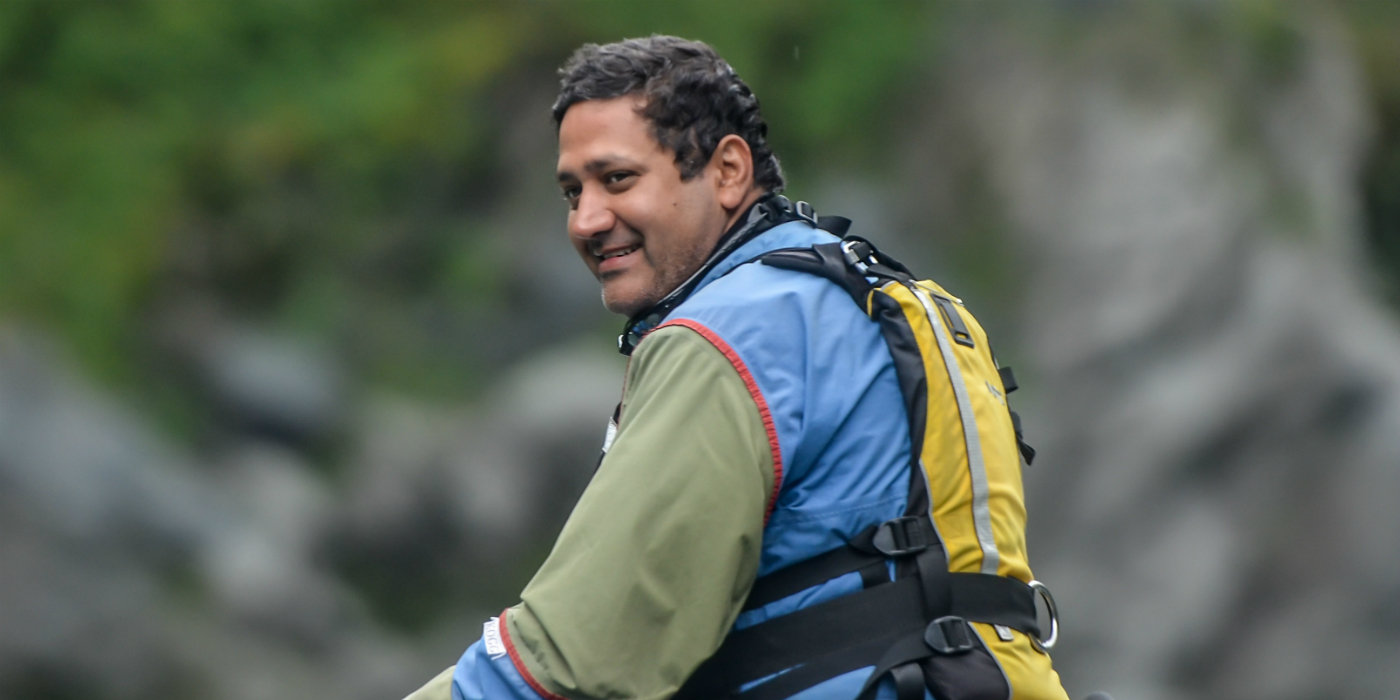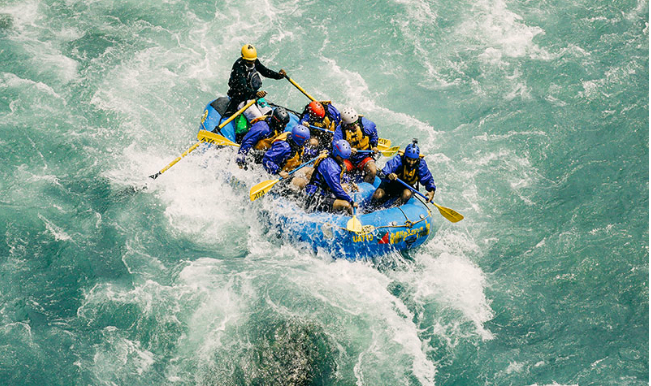
Vaibhav Kala, Founder & Director, Aquaterra Adventures
Guiding since the ealry 90s, Vaibhav Kala, Founder and Director of Aquaterra Adventures, has been at the forefront of conceiving, planning and executing trips that were considered too audacious to run. He is responsible for opening up remote Himalayan valleys to adventure tourism, and has helped open up Indian river running like none before—with rivers like the Tons, the Siang (Upper Brahmaputra), Subansari, Lohit in Arunachal Pradesh and the Pindar. Belonging to the Garhwal Himlaya, he has been on climbing expeditions in the Himalaya and beyond. He also conceived and set up activotel resort Atali Ganga and India's only adventure race www.hacrace.com involving a hike-bike-paddle combination as a fund raiser after the massive Uttarakhand flood of 2013. He continues to be at the forefront of guiding adventure travel and helping frame policy for safer adventure travel in India. Edited excerpts from an interview:
Q. What led you to Responsible Tourism? Tell us more about your organisation.
Vaibhav: The sort of work we do has always been committed to natural heritage regions, out of cities and largely in protected and reserved forests. So an immediate connect to be 'responsible' has always been part of the system. This is all I have been doing since 1992, starting as a mountain and river guide, when there was very little 'outdoor' and 'leisure' tourism. They were the days of 286 computers, telex systems and international faxing was at the mercy of being able to get a call out overseas. There was no market in India.
Aquaterra Adventures began in 1995 offering mobile, self contained trips across the Himalaya, which still remains our USP. Diversifying into soft adventure base camps and a full fledged activity lodge in the mountains (also a winner of the Responsible Tourism Award), Aquaterra offers custom adventures, group departures, 2-3 day breaks at our three properties, and upto 2-3 week expeditions on rivers and mountains across the Himalaya. We also promote adventures in Tanzania, Zambia, Morocco, Jordan, Nepal, Bhutan, Peru and Chile.
Q. What can travellers expect when they sign up for a tour with you?
Vaibhav: Travellers expect safety, consistency and reliability when they sign up with us. With no army of sales persons selling tours, the demography remains a highly focused one through referrals, word of mouth distribution of the brand and repeat experiences forged by the diversity of products on offer. We are known for owning the experience with our own guiding team, equipment, logistical back end, that offers us complete control of the clients experience.

Q. What are the main challenges you faced while setting up your organisation and the challenges you continue to face as you run it? How have you dealt with these challenges?
Vaibhav: When we started, there was a very small, evolved and educated market and industry. The challenges were communication, reaching out and a world without internet! Setting up a website was a challenge (our first was made of a series of Jpeg files) and availability of quality equipment was a huge hurdle.
The main challenges today remain unregulated growth in industry, where there is no pre-qualification for an industry where safety must be paramount. Rising accident rates, a raging price war, unreported incidents and low prioritisation of risk mitigation remain a problem. Overtourism in certain regions is eroding the very USP that brings people to the mountains.
We have dealt with these challenges by plodding on and working with the industry to reduce the challenges, whilst engaging with the governments at State and Center.
Q. What is the impact of your organisation?
Vaibhav: We have always maintained a strong 'from the regions we work in' hiring approach. It gives us the most satisfaction that 99.5% of our 90+ strong team comes from the regions we work in. So besides giving us even further domain expertise, it is a matter of pride that they are empowered to retain permanent jobs doing what they like, an absolute rarity in this industry that relies on part time employment and low on long term commitment. They have been able to educate their children in city schools and build homes, have access to healthcare and retain jobs in regions that have seen large scale migration due to lack of job opportunities.
Q. Please list your proven best practices that other RT practitioners could implement.
Vaibhav: a. Removal of all single use plastic items from our operations. Garbage disposal bags have also moved from plastic to gunny bags.
b. Shortlist products with less plastic packaging (reusable dispensers and open food items)
c. Bio-degradable soaps, organic and local food, local supplies, local suppliers






